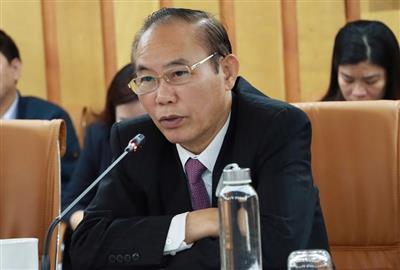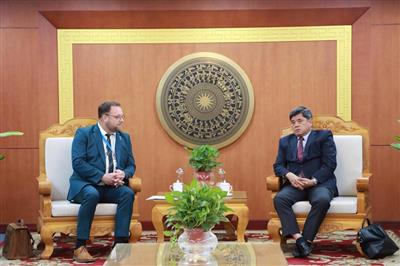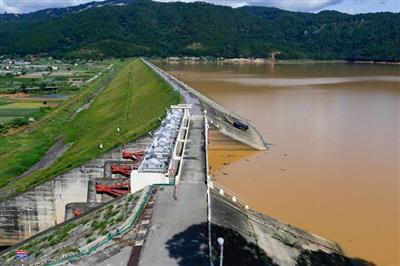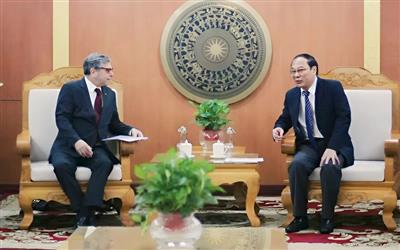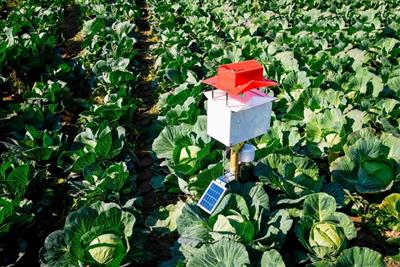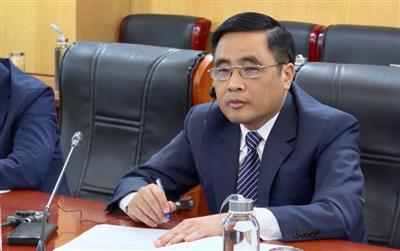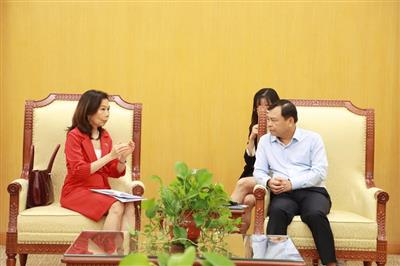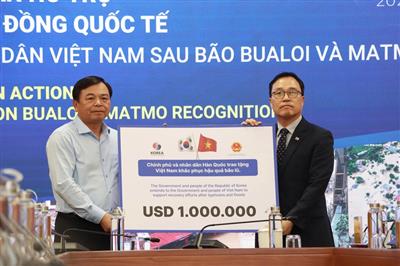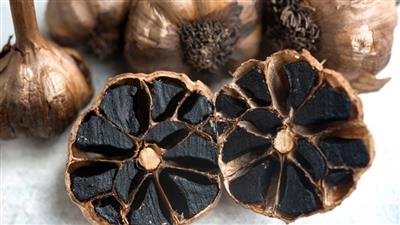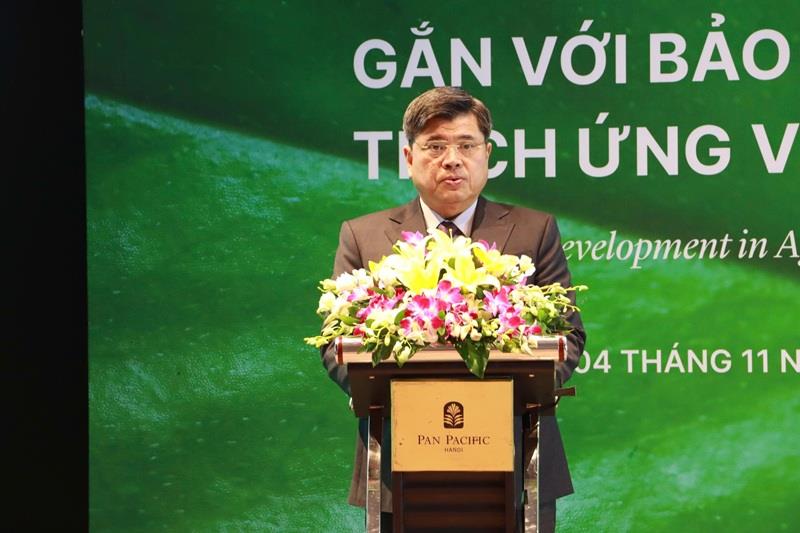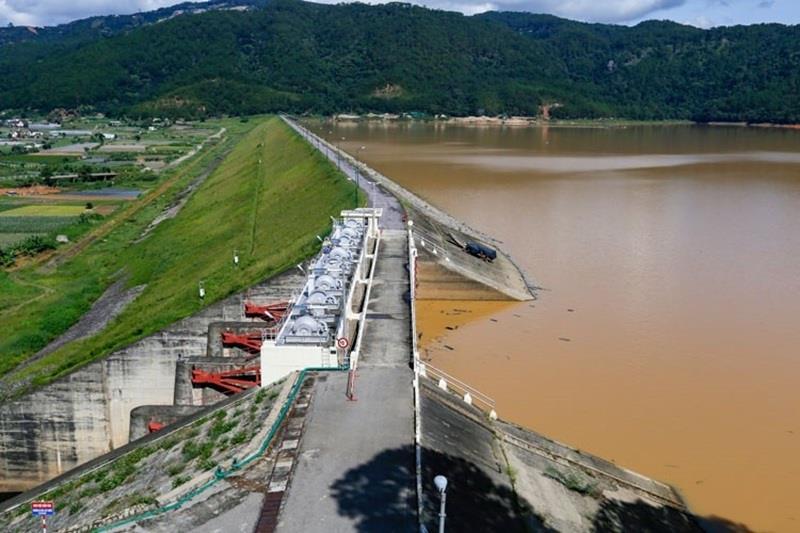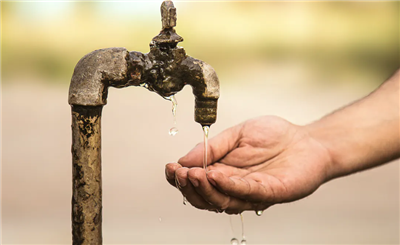
Vietnam and Australia cooperate to advance the circular economy and sustainable agriculture
04/11/2025TN&MTAs Vietnam faces increasing impacts of climate change, promoting the circular economy and advancing sustainable agricultural technologies play a crucial role in building a green and resilient agriculture sector.
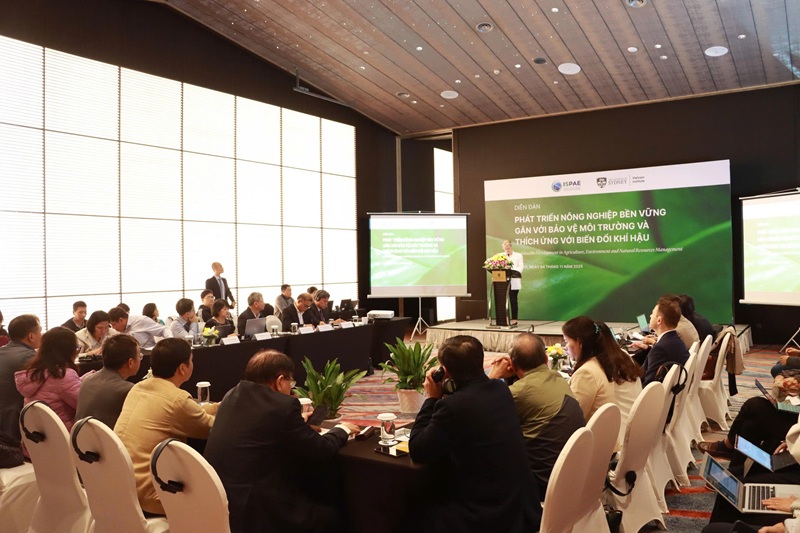
The Forum on sustainable agriculture development for environmental protection and climate change adaptation opens new avenues for Vietnam–Australia cooperation in green transition
On November 4, the Institute of Agricultural and Environmental Policy and Strategy (ISPAE), under the Ministry of Agriculture and Environment, in collaboration with the University of Sydney Vietnam Institute (SVI), organized a forum titled “Sustainable agricultural development in association with environmental protection and climate change adaptation.” The event built upon outcomes of recent exchanges and working visits between Vietnam and Australia, aiming to deepen cooperation in transitioning toward a circular economy and net-zero growth.
Four priorities for Vietnam–Australia cooperation
In his opening remarks, Deputy Minister of Agriculture and Environment Tran Thanh Nam emphasized that amid growing challenges from climate change and resource depletion, sustainable development is no longer a choice but an essential path for Vietnam’s integration and progress.
He highlighted that cooperation between Vietnam and Australia — a country with advanced agricultural science, resource management, and renewable energy technologies — carries strategic significance for Vietnam’s green transition. “I believe today’s forum will open new directions for cooperation and generate effective technological and policy solutions for sustainable agriculture and climate adaptation,” the Deputy Minister said.
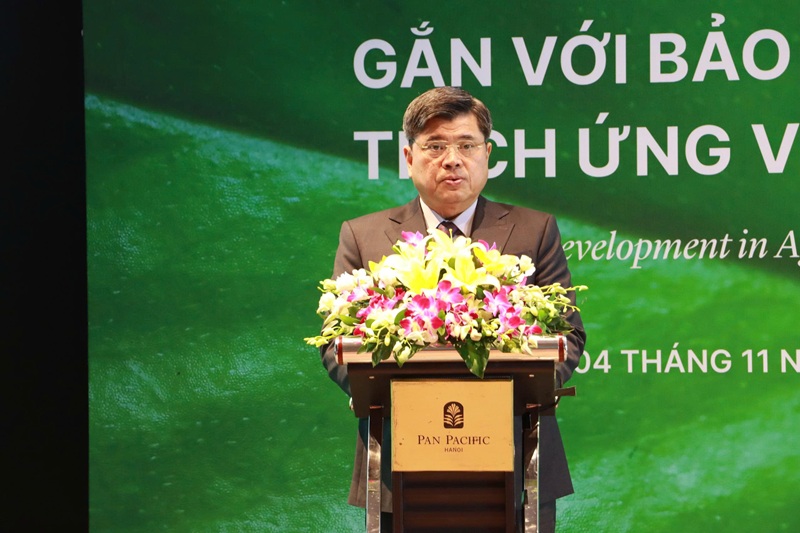
Deputy Minister Tran Thanh Nam emphasized that in the context of climate change, resource depletion, and economic pressure, sustainable development and the circular economy are the only viable paths forward for Vietnam and its partners
At the forum, Dr. Nguyen Thu Anh, representing the University of Sydney Vietnam, underscored the strong partnership between the two countries in sustainable agriculture and outlined four key priorities for cooperation in the years ahead: First, the circular economy goes beyond waste reduction; it involves redesigning production and consumption systems toward an integrated approach, from waste management and recycling to energy transition and sustainable agriculture. Both countries can share experience and knowledge in developing modern recycling infrastructure, eco-industrial parks, and applying digital technologies such as AI and IoT to optimize supply chains and reduce emissions.
Second, cooperation with Australia will enable Vietnam to access safe mining technologies, mine waste management practices, and ESG standards, thereby enhancing competitiveness in international markets. Third, developing and applying modern technologies in agriculture to increase productivity and reduce greenhouse gas emissions. Finally, promoting food safety to protect public health and enhance the export value of agricultural products.
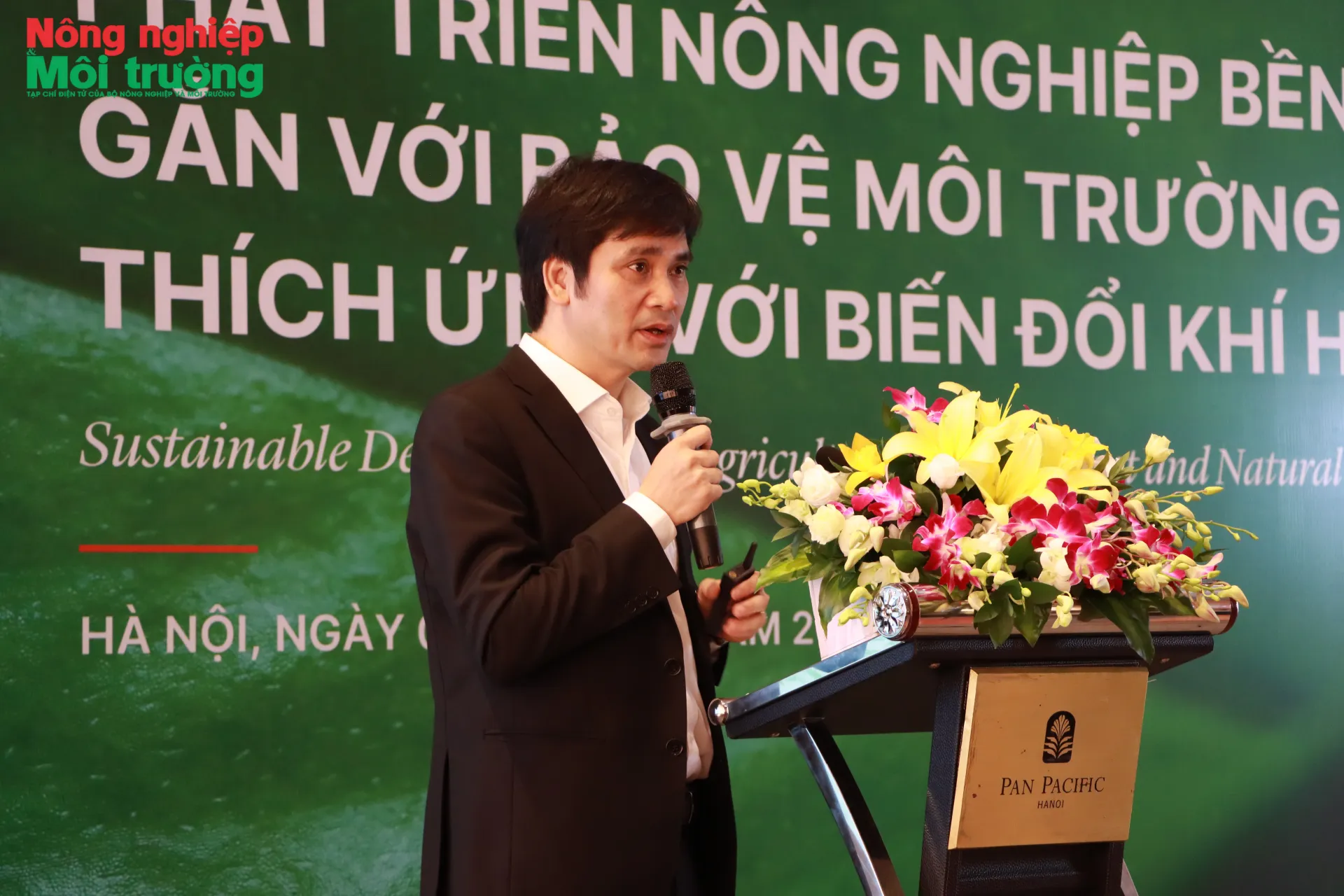
Dr. Tran Cong Thang proposed key measures to advance Vietnam’s circular economy, including smarter production and consumption, extending product lifespans, promoting waste recycling, and recovering energy from waste incineration
Following the thematic discussions, Dr. Tran Cong Thang, Director General of the Institute of Agricultural and Environmental Policy and Strategy, outlined several priority measures to advance the circular economy in Vietnam. He emphasized the need to promote smarter use and production of goods, extend the lifespan of products and their components, and minimize waste generation through recycling, by processing and converting waste into useful raw materials, fuels, or products, while recovering energy through waste incineration. These solutions, according to Dr. Tran Cong Thang, would not only improve resource efficiency but also help build a sustainable and low-emission production model aligned with Vietnam’s circular economy strategy.
Deputy Minister Tran Thanh Nam proposed that following the forum, the Ministry of Agriculture and Environment hopes to receive continued support from the Australian Embassy, the University of Sydney, and relevant Australian agencies in connecting and expanding cooperation with Vietnamese partners — particularly with the Vietnam National University of Agriculture, the University of Natural Resources and Environment, and research institutes under the Ministry — to develop practical solutions and technologies for sustainable agriculture and climate adaptation.
Practical solutions and models shared at the forum
At the forum, experts from Vietnam and Australia shared a common view that developing a circular economy is a key foundation for building a green, efficient, and climate-resilient agriculture.
Delegates emphasized that many countries are now striving to establish climate-adaptive circular agriculture models, recognizing this as an inevitable development trend. In this regard, the circular economy is not limited to recycling, but represents a comprehensive “design–produce–reuse” approach that optimizes resources, minimizes emissions, and regenerates value throughout the product life cycle.
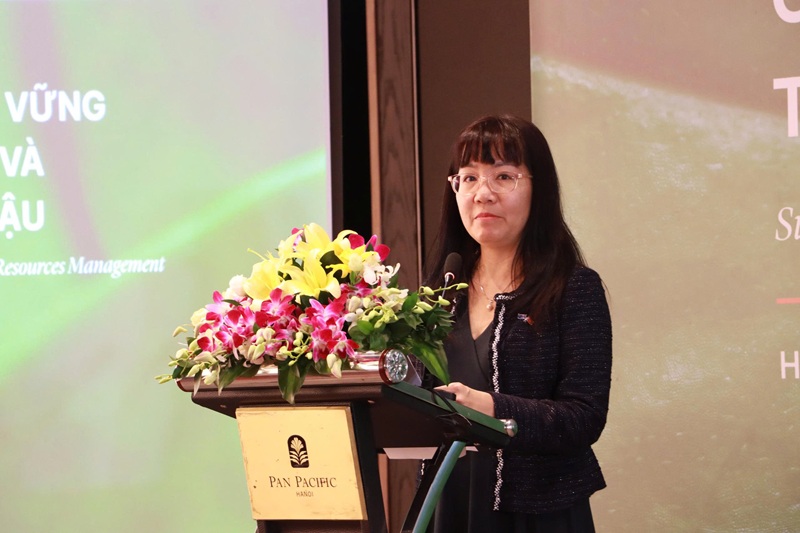
Professor Nguyen Thu Anh, Director of the University of Sydney Vietnam, highlighted that the circular economy requires redesigning production and consumption systems, integrating waste management, energy transition, and sustainable agriculture, and underscored the potential for cooperation in eco-industrial parks, recycling infrastructure, and digital technologies such as AI and IoT
Professor Ali Abbas, Associate Dean (Research), Faculty of Engineering, University of Sydney, analyzed that effective circular economy development requires coherent policies, appropriate technologies, and, most importantly, an ecosystem that fosters innovation. He noted that circular principles can be applied across various sectors, from agriculture and agro-processing to resource extraction and clean energy, bringing substantial economic, social, and environmental benefits.
“Vietnam and Australia can move from dialogue to action. Through the University of Sydney Vietnam, we seek to connect stakeholders in policy, research, and industry to jointly build a circular roadmap for the plastics sector, pilot ESG-aligned processing of strategic minerals, and develop shared human resources. These are concrete steps to help Vietnam transition to a circular, carbon-neutral economy while strengthening our long-term and trusted partnership,” Professor Abbas affirmed.
During discussion sessions, participants also shared a range of practical initiatives, such as integrating clean technologies into mineral value chains, developing eco-agriculture models adapted to climate change, applying artificial intelligence (AI) and big data in monitoring agricultural quality, and reducing emissions in vulnerable regions such as the Mekong Delta.
The outcomes of the forum provide an important foundation for Vietnam and Australia to expand cooperation and implement joint projects in sustainable agriculture, resource management, and environmental protection, moving toward a green, inclusive, and responsible future for both people and nature.
Khanh Linh - Ngoc Huyen




